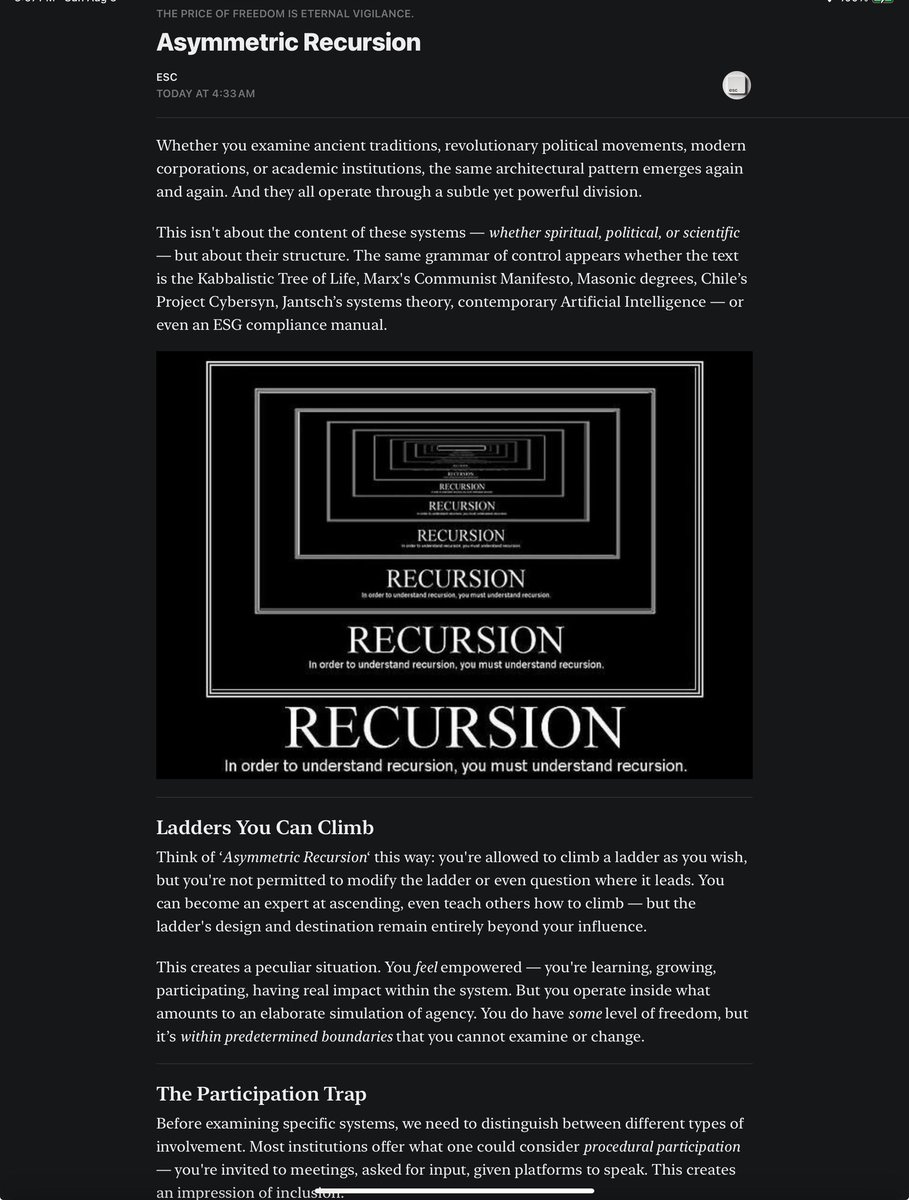
An everyday glance into our embracing of destructive ideas, their withered leaves and spoiled fruits.
3 subscribers
How to get URL link on X (Twitter) App

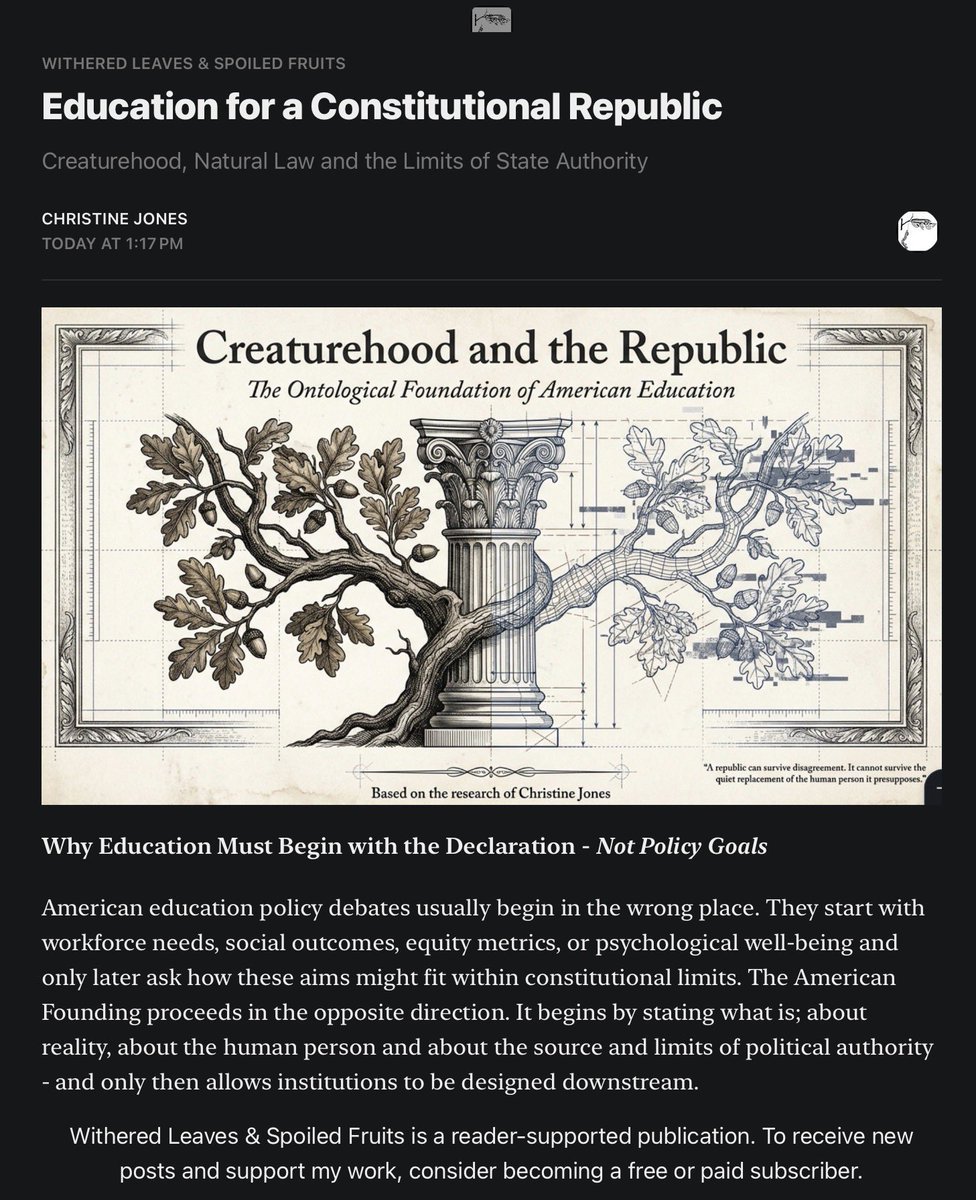
 2/
2/ 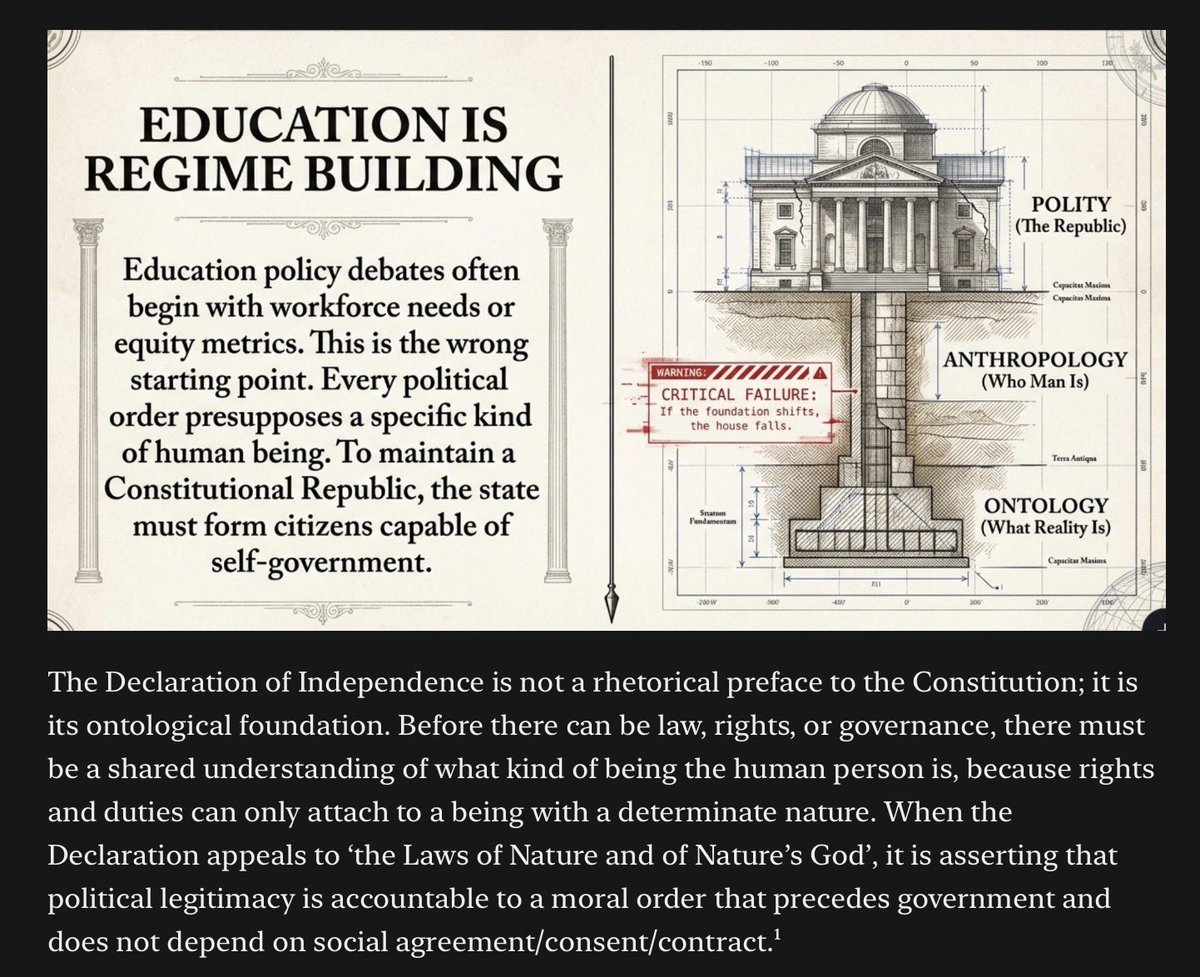
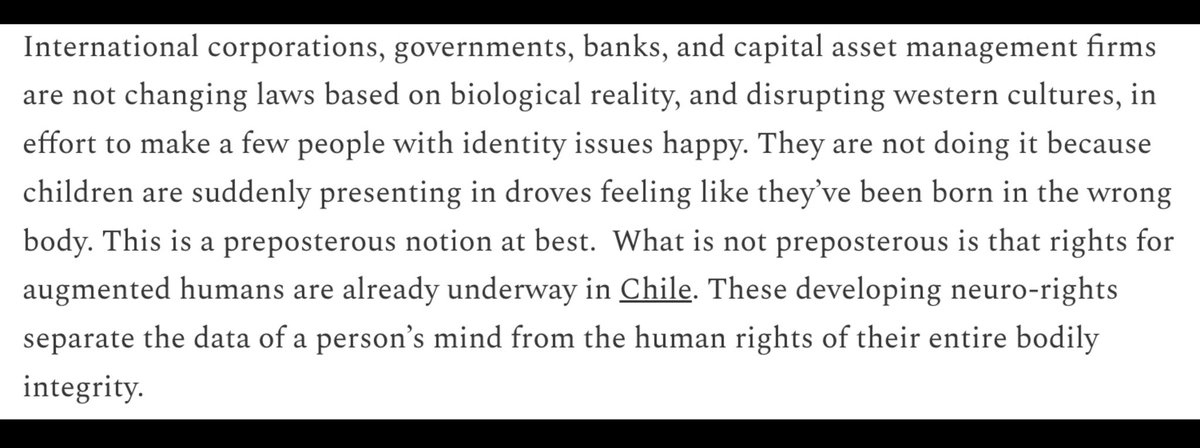
https://x.com/thepalmerworm/status/20226979946178437732/ The corruption - replacing ontology with biology
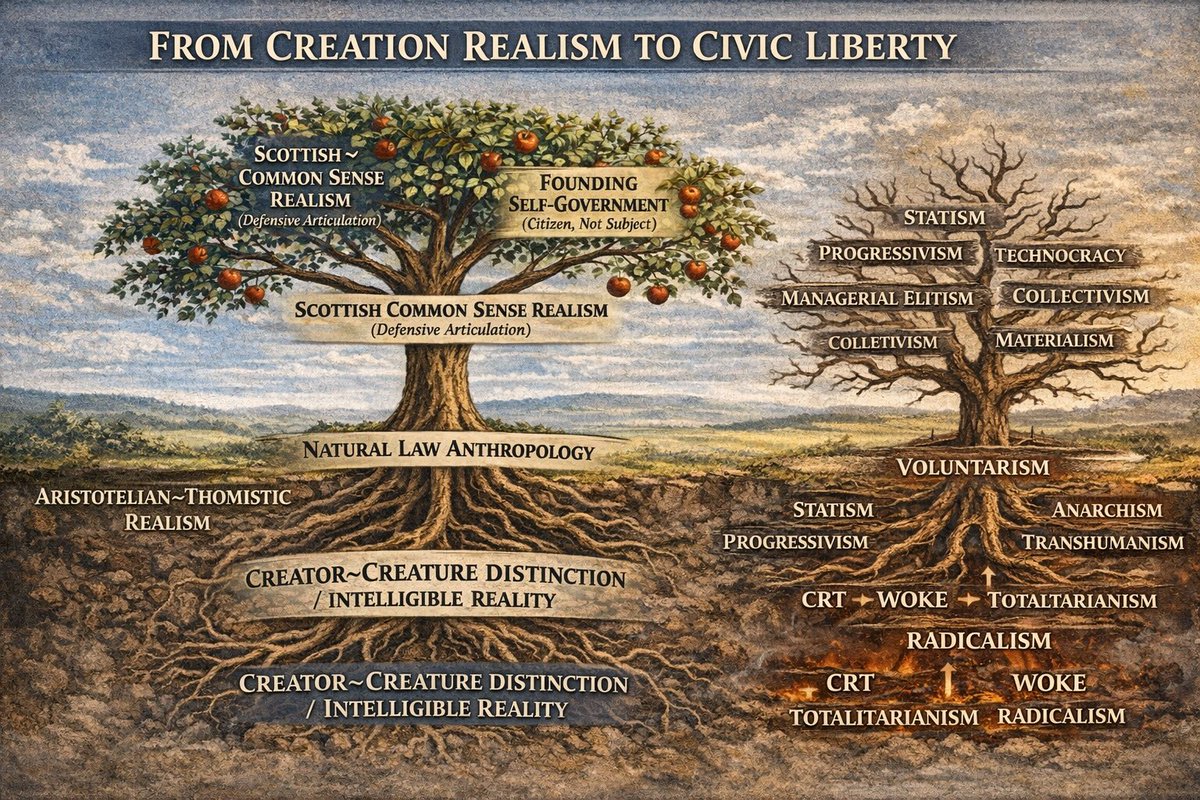
https://x.com/thepalmerworm/status/2011473109258301711
 2/
2/ 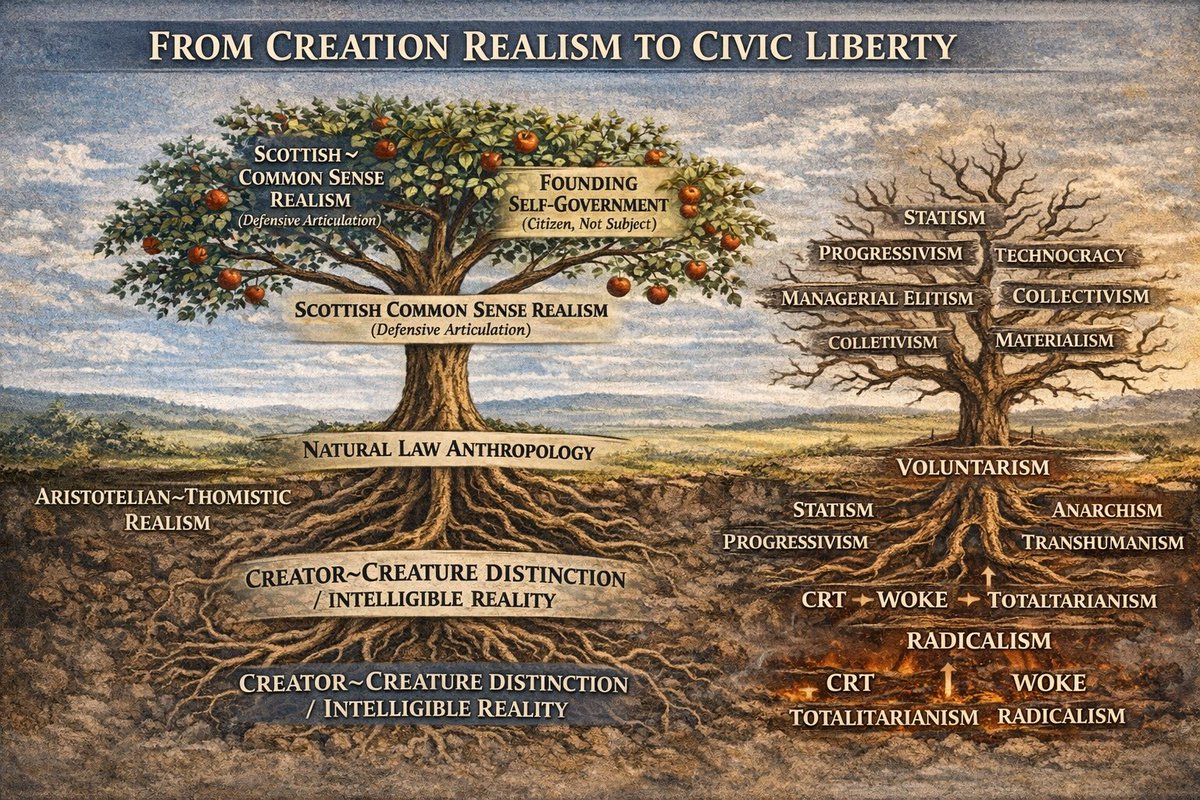
https://x.com/thepalmerworm/status/20110652425585708002/
https://x.com/thepalmerworm/status/19944177709984686822/

https://x.com/thepalmerworm/status/19819778597461118522/
https://twitter.com/thepalmerworm/status/19810004072466600032/
https://x.com/thepalmerworm/status/19810181059638112832/ Now The Dialectical Core

 2/
2/






 2/ The Structural Irony
2/ The Structural Irony
 2/
2/

 2/ The Telos of Education in the Classical Republic
2/ The Telos of Education in the Classical Republic
